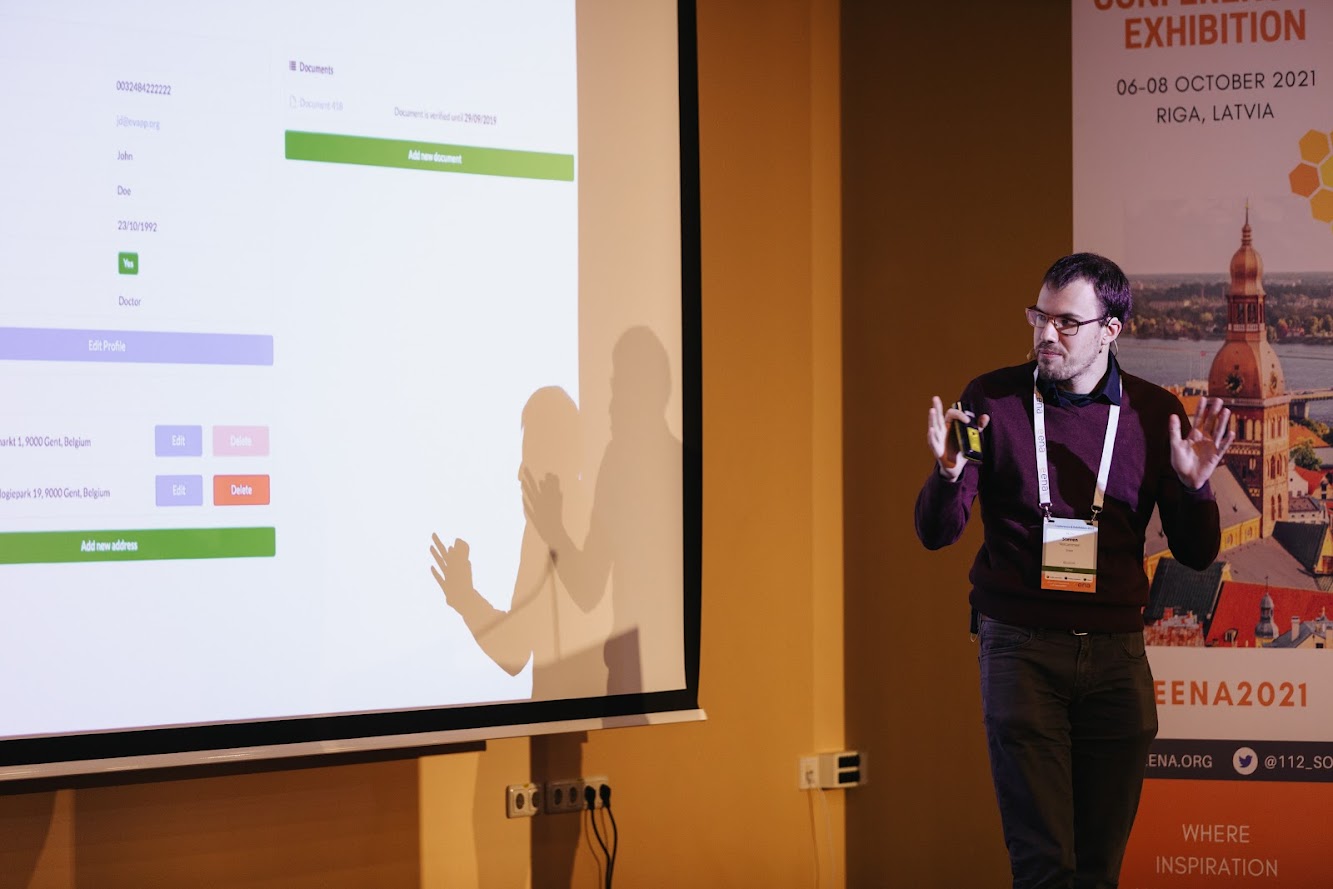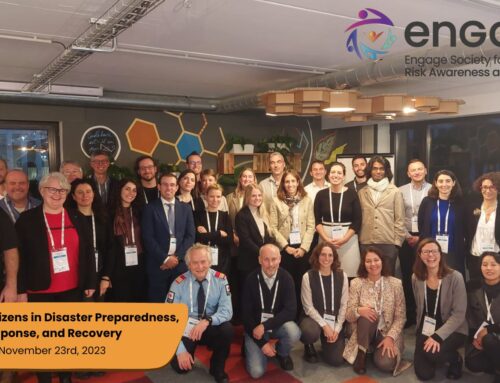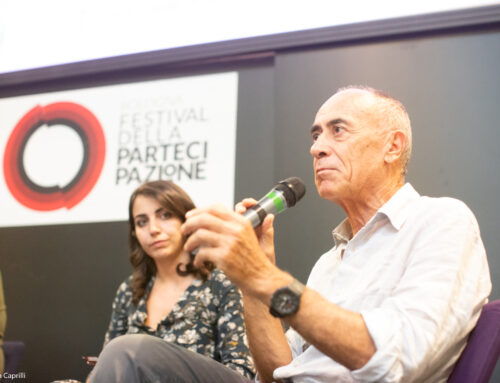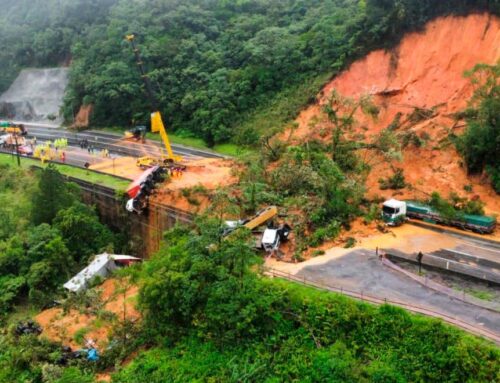This autumn, EENA organised the EENA Conference & Exhibition 2021 in Riga, Latvia.
The event took place from the 6th to the 8th of October and was packed with inspiring and innovative sessions providing all the tools to keep driving change for public safety. ENGAGE partner Deep Blue, members of our KI-CoP and other partners from our DRS01 cluster attended the event.
This Conference is a space for our community to share knowledge, from emergency services professionals and researchers to solution providers, mobile network operators and EU institution representatives.
We were delighted to have had the opportunity to finally be able to talk with ENGAGE partners and experts face-to-face and discuss future synergies and possible challenges to tackle together.
For those who were not present, here is a summary of the different contributions from ENGAGE partners and members of our KI-CoP at the EENA Conference & Exhibition 2021.
Session: Natural Hazards – Challenges, technologies and response
Extreme weather events continue bringing new risks to public safety and climate change will only intensify these risks.
 The member of our Knowledge and Innovation Community of Practice (KI-CoP), Federico Brizio, Firefighter at the Genoa Fire Brigade Control Room, explained the challenges posed by flooding in the province of Genoa, in Italy – a Mediterranean seaport that is prone to this type of hazard.
The member of our Knowledge and Innovation Community of Practice (KI-CoP), Federico Brizio, Firefighter at the Genoa Fire Brigade Control Room, explained the challenges posed by flooding in the province of Genoa, in Italy – a Mediterranean seaport that is prone to this type of hazard.
In addition to managing this type of event, other challenges arise during a natural hazard, such as false calls that increase the flow of calls or misinformation on social networks. Federico shared approaches to face floodings and tips to protect the population and emergency professionals. Check his presentation here and hear the recording here.
Session: Cooperating with volunteers to tackle emergencies
Volunteers can be integrated along the chain of emergency services, but getting the most from their commitment requires coordination, clear planning and procedures.
 The member of our Knowledge and Innovation Community of Practice (KI-CoP), Adam Williams, Head of Community Response at St. John Ambulance in the United Kingdom shared his expertise on how volunteers are best integrated into emergency response and explained the key role of volunteers during the COVID-19 pandemic. The pandemic was in the country, the biggest challenge in terms of crisis response since the second World War.
The member of our Knowledge and Innovation Community of Practice (KI-CoP), Adam Williams, Head of Community Response at St. John Ambulance in the United Kingdom shared his expertise on how volunteers are best integrated into emergency response and explained the key role of volunteers during the COVID-19 pandemic. The pandemic was in the country, the biggest challenge in terms of crisis response since the second World War.
Crisis management was only possible due to the support of volunteers e.g. support in COVID-19 care and logistics transformed, support NHS, help in the vaccination process, etc. Adam reiterated that it’s essential to realize that the pandemic has changed the role of volunteers a lot. If before they were managing minor crises like adolescents under the influence, they were now having to be in an intensive care unit helping patients.
Another member of our KI-CoP was also a speaker in this session.
Steve Vercammen, President of Evapp, a Belgium volunteer society. He explained how their Emergency Volunteer Application is involving volunteers in Belgium’s rural areas. Like, for example, in the Belgian region of Hoogstraten, a “black hole” for Emergency Medical Technicians in terms of emergency services arrival times – an average of 15 to 30 minutes before help arrives at the scene.
Steve talked about different topics to be addressed, such as how to attract and retain volunteer staff.
 Rut Erdelyi, European Director of The Resilience Advisors Network and work package leader for the Horizon 2020 project RESILOC, was the chair of this session and joined our meeting with our KI-CoP members where we discussed the importance of expertise sharing between different EU projects that are researching the same matters.
Rut Erdelyi, European Director of The Resilience Advisors Network and work package leader for the Horizon 2020 project RESILOC, was the chair of this session and joined our meeting with our KI-CoP members where we discussed the importance of expertise sharing between different EU projects that are researching the same matters.
See the slides of the presentations here and here. Listen to the full recording of this session here.
The next EENA Conference & Exhibition 2022 will be in Marseille from 27-29 April 2022. We believe that this event will be an excellent meeting point to build synergies between project partners and members and to share expertise and best practices that can eventually bring important contributions to the ENGAGE project.
Authors: Marta Azevedo Silva, EENA





